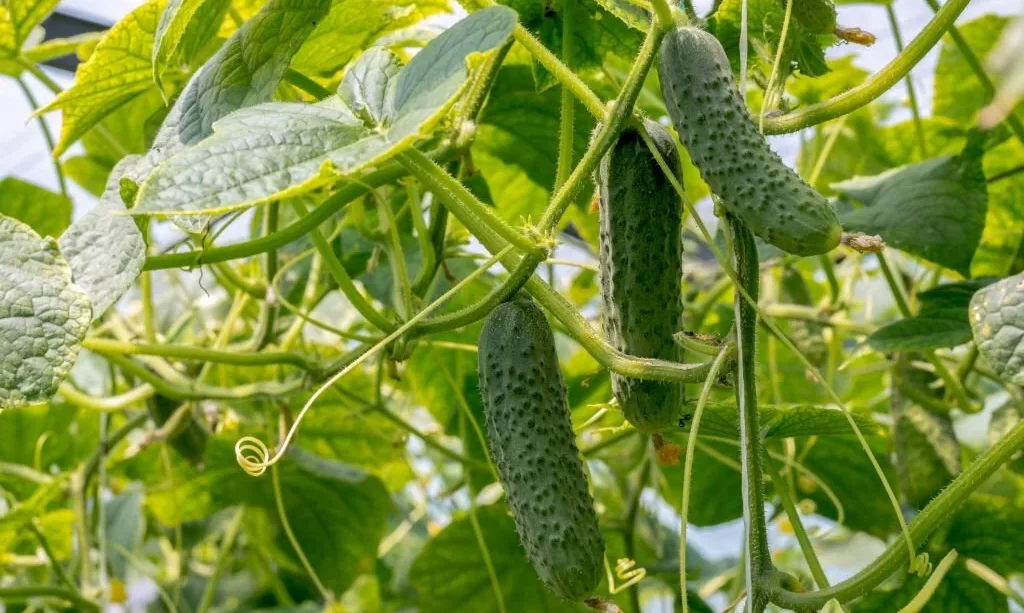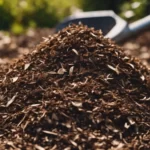Cucumber plants, part of the Cucurbitaceae family, are popular in gardens due to their productive nature and relative ease of growth. Their root systems play a crucial role in their development and fruit production. Understanding the structure and depth of cucumber roots is essential for effective garden planning, ensuring adequate space and optimal growing conditions. This knowledge assists gardeners in making informed decisions about planting, watering, and soil management.
Typical Depth of Cucumber Roots
Cucumber roots typically extend 36 to 48 inches deep under ideal conditions. However, most of their feeder roots, responsible for absorbing water and nutrients, are found within the top 12 inches of soil. This root depth can vary based on factors like soil type, with roots growing deeper in loose, well-drained soil compared to compacted or clay-heavy soils. Additionally, different cucumber varieties may have slightly varying root depths, influencing how gardeners should approach their cultivation.
Impact of Root Depth on Plant Health
The depth of cucumber roots significantly impacts their water and nutrient uptake, directly affecting plant health and productivity. Deeper roots access more moisture, especially important during dry periods, and help the plant withstand drought conditions. Conversely, shallow roots may lead to frequent water stress, impacting plant growth and fruit yield. A healthy, deep root system also enables better nutrient absorption, contributing to overall plant vigor and resilience against pests and diseases. Gardeners must consider these aspects when managing soil conditions and watering schedules.
Cultivation Practices for Optimal Root Growth
To encourage deep root growth in cucumbers, start with well-prepared soil. Loosen the soil to a depth of at least 12 inches and enrich it with organic matter like compost to improve structure and nutrient content. When planting, give each cucumber plant enough space to spread its roots. Regular, deep watering encourages roots to grow downwards in search of moisture, as opposed to frequent shallow watering which promotes superficial root systems. Mulching helps retain soil moisture, further supporting deep root development.
Common Challenges with Cucumber Root Systems
Cucumber plants often face challenges related to shallow rooting. Inadequate water penetration or compacted soil can restrict root growth, making plants more susceptible to drought stress and high temperatures. Overcrowding can lead to root competition, impacting plant health and yield. To mitigate these issues, ensure proper soil preparation, adequate spacing, and consistent deep watering. Be vigilant about soil compaction, especially in heavy clay soils, and consider raised beds or containers as alternatives.
Enhancing Root Health for Better Yield
Maintaining root health is key to a bountiful cucumber harvest. Apply balanced fertilizers to provide essential nutrients, focusing on phosphorus, which promotes healthy root development. Incorporating organic matter like compost improves soil structure and nutrient availability. Regular monitoring of soil moisture and adjustments to watering practices as needed can significantly benefit root health. Be mindful of root disturbances during cultivation and weed control, as this can negatively impact root systems and overall plant health.
Conclusion
Understanding and managing the root depth of cucumber plants is vital for successful gardening. Proper soil preparation, watering techniques, and nutrient management are crucial for promoting deep, healthy root systems. Addressing common challenges like shallow rooting and soil compaction can greatly enhance plant resilience and productivity. By focusing on the health of the roots, gardeners can enjoy robust cucumber plants and a plentiful harvest. This holistic approach to root care is an integral part of effective gardening and underscores the importance of below-ground plant parts in overall plant health and yield.



